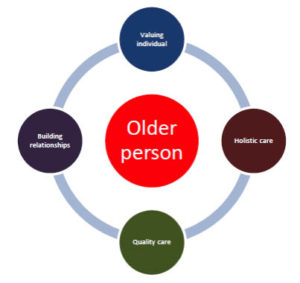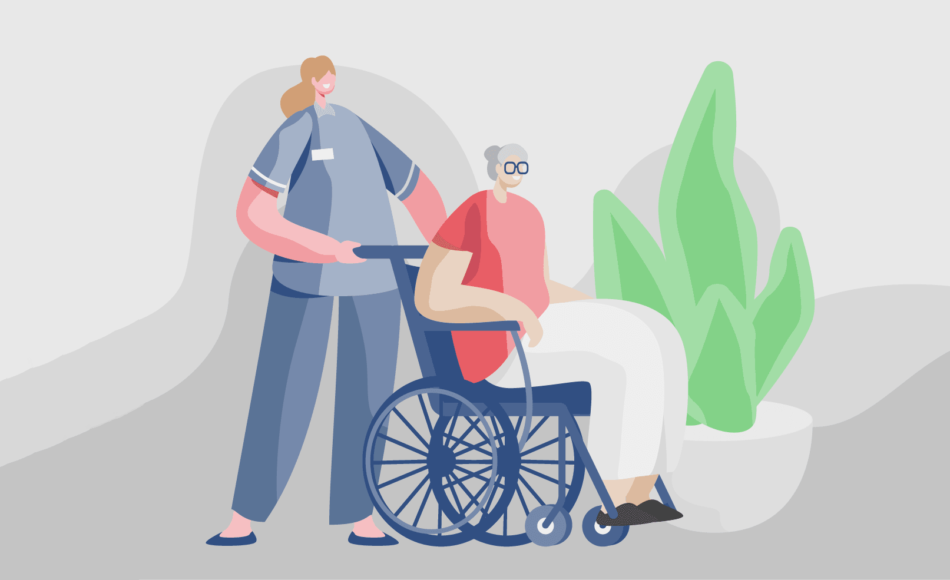Aged care jobs in the land of kangaroos is considered one of the most challenging jobs. With the growing aged population, the demand for professional support is increasing proportionally, and the Australian government has predicted that there will be an approximate 179,000 jobs opening in the next five years, increasing the number of people required to double in the coming years!
ELDER ABUSE – Royal commission into Aged Care quality and safety
Around 39.2% of people living in Australian aged care facilities experience elder abuse in the form of neglect, emotional abuse or physical abuse according to experimental estimates by the Office of the Royal Commission into Aged Care Quality and Safety.
The Royal Commission examined key design issues for a new home care system and how the sector would transition to a new home care system, where topics covered included employment and engagement arrangements plus qualifications and training for home care workers, and regulation of services in individual’s homes and the community, resulting in an improvement of personnel onboarding and training control.
What are the Responsibilities of an Aged Carer?
The duties or responsibilities of an Aged carer include but are not completely limited to:
- Assisting in mobility
- Accompanying in daily activities
- Preparing food
- Organising social activities
- Housekeeping tasks like cleaning or vacuuming
- Taking care of their hygiene
- Providing emotional support and companionship
- Going shopping or other activities
Requirements for a job in Aged Care
- Educational Qualifications
Depending on the position and skills involved, a qualification may be required. As such, employers often prefer someone who has a certificate course to ensure that they have the proper training. One can obtain Certificate III or IV to work in aged care in Australia.
- Criminal History Check
All applicants are required to obtain a National Criminal History Check certificate as per the Aged Care Act 1997. According to the Act, the implementation of guidelines complements rigorous recruiting practices. It ensures that all staff and volunteers are appropriate to care for the elderly and is not convicted for any crimes which may put the safety of the aged/disabled at risk.
Where can you obtain a National Criminal History Check?
An ACIC accredited provider authorised to offer the service like Backy Check from our partner AMICI Tech can emit a police check certificate for this purpose. Backy Check is a 100% online service that has become the main financial support for SnowBell.
You’ll Need Specific Skills and Attributes
There are several key skills and attributes that aged care workers require to build a successful career in the industry. Employers lookout for those with a caring and supportive attitude, good communication skills, patience and discretion and physically fit.

Opportunity is abundant
The aged care industry is expanding at a pace like no other.
2020’s COVID-19 pandemic shone a light on some critical vulnerabilities in the residential aged care system and attracted widespread criticism of current policies. As a result of the Royal Commission, which will be released in February 2021, we’ll likely see some long-overdue restructuring soon. Possible changes include a shift toward “smaller, community-run aged care homes,” and more home-based care. The sector is also desperately in need of more skilled, passionate carers to step in and help improve the quality of care and enable our older citizens to live the life of dignity they deserve.
What this means for you is that once qualified, you’ll have plentiful job opportunities. Carers are in demand across the country, so whether you’re based in NSW, Queensland, Victoria or Western Australia, can get employment in the sector quickly and get started building a successful, fulfilling aged care career. And it’s doubtful that you’ll have to worry about unemployment with this kind of demand, making aged care a future-proof career.
Major Roles in Aged Care
Roles in aged care can vary. Within the industry, there are many different roles which may suit the skills and personality of a caregiver.
In community care, residential or respite care, the worker needs to report to the registered nurse or work according to their direction. Later, your role can shift from direct caregiver to oversee team members’ jobs or to manage the overall operations.
- Aged care worker
- Residential support worker
- Community support worker
- Assistant in Nursing
- Registered Nurse
You Will Be Making a Difference to Someone’s Life
If you love working with people and helping people a career in the aged care sector could be suitable for you. Working with the elderly or those with a disability that requires assistance can bring a huge amount of joy into someone else’s life.
You may become their personal assistant, their confidant, their emotional crutch, perhaps their cook or cleaner.
It’s more than just being a carer. Working in aged care gives you rewards that money can’t buy. You’ll go home each night knowing you have enhanced the lives of your clients. Maybe your care allows them to stay in their own home for as long as possible; perhaps you’re enabling them to have a better quality of life, providing them intensive support within a high care facility. Whatever path you choose, you’ll know that you’re making a difference every day.

